

When Survivor debuted in 2000, it featured a cast of sixteen strangers, regular people with jobs like "truck driver" and "biochemist" and "student." (Okay, that last one remains fairly popular on the show.) They were not just diverse in ethnicity, but also in age, ranging from Rudy Boesch at 72, to two people in their 60s (Sonja and B.B., the first two people booted), to... the usual bunch of twenty- and thirty-somethings. But Rudy made it all the way to the final immunity challenge that season, and probably would have won the whole game had it not been for a momentary lapse in focus. Instead, an almost-40 Richard Hatch took home the first million.
Survivor casts have trended younger and older over the years. Three-fourths of the Pearl Islands cast (12 out of 16 contestants) were 31 or younger, and the oldest male player was Andew Savage, at 40. On the other end of the spectrum, recent returnee seasons like Cambodia and Game Changers have had many over-40 contestants, and just last year, the all-newbie Millennials vs. Gen X cast included a whopping nine contestants 37 or older. Somewhat confusingly, when Jeff Probst gave his pre-game press interviews for that season, he pitched the age-division concept as "CBS wanted us to have more young people," despite the cast containing highest percentage of older ones since Nicaragua.
As it turns out, he must have been projecting the network's direction for the next round of casting, because despite the success of MvGX, Survivor is once again getting younger. Much, much younger. The average contestant age in MvGX was 33.0, and in Game Changers it crept up to 36.6, but for Heroes v. Healers v. Hustlers, it drops to 30.6, including one initial tribe in which five of the six contestants are 25 or younger (mean age: 26.3). Shown above: The "Heroes" or Levu tribe, who are the oldest, with a mean age of 35.3, and include two of the three over-40 contestants. According to InsideSurvivor's sleuthing of the contestants for Season 36 (the next season after HvHvH), the average contestant age will drop even further for that season, down to 27.3 (albeit with one contestant as yet unknown). Only one alleged contestant for that season is older than 40, and he's the ripe old age of 41.
So after a brief run of demonstrating that over-40 players can still play (42-year-old David Wright, 46-year-old Cirie Fields, now-41 Sandra Diaz-Twine, even 46-year-old Brad Culpepper), a new age has come for Survivor. Nowadays, 29 is the new 40, apparently. Any older than that, and you're too old. It's an odd look for a show entering its 18th calendar year, whose loyal audience has aged along with it, as has its host. But it's the direction the show has chosen, and no amount of complaining now is going to change the makeup of the next two seasons, which have already filmed.
So we decided to ask a heretical question: Does it even matter? Historically, can over-40 players actually even win Survivor? You may be surprised at the answer (tl;dr): It's no.
Where the winners are (21-41)
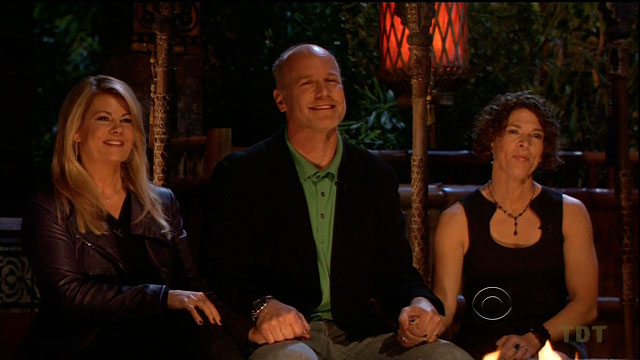
First off, the simple answer to our just-asked question above is "Yes, Bob Crowley was 57 when he won Gabon, so of course people over 40 can win! Also Denise Stapley was 41 when she won Philippines."
That simple answer, however, raises more questions, since those are the only two winners over 40, despite 34 Survivor seasons having aired to completion. And Denise was just one year over 40. (Tom Westman was exactly 40 in Palau.) And her Final Three opponents in Philippines were two people older than she was: Lisa Whelchel, 49 and Mike Skupin, 50. So the jury wasn't really given a choice that season. Someone over 40 was guaranteed to win. Ugh, old people!
Given other options, however, how frequently does the jury pick someone over 40? First, let's look at the age distribution of Survivor winners. The simplest way is just counting up how many winners represent each age:
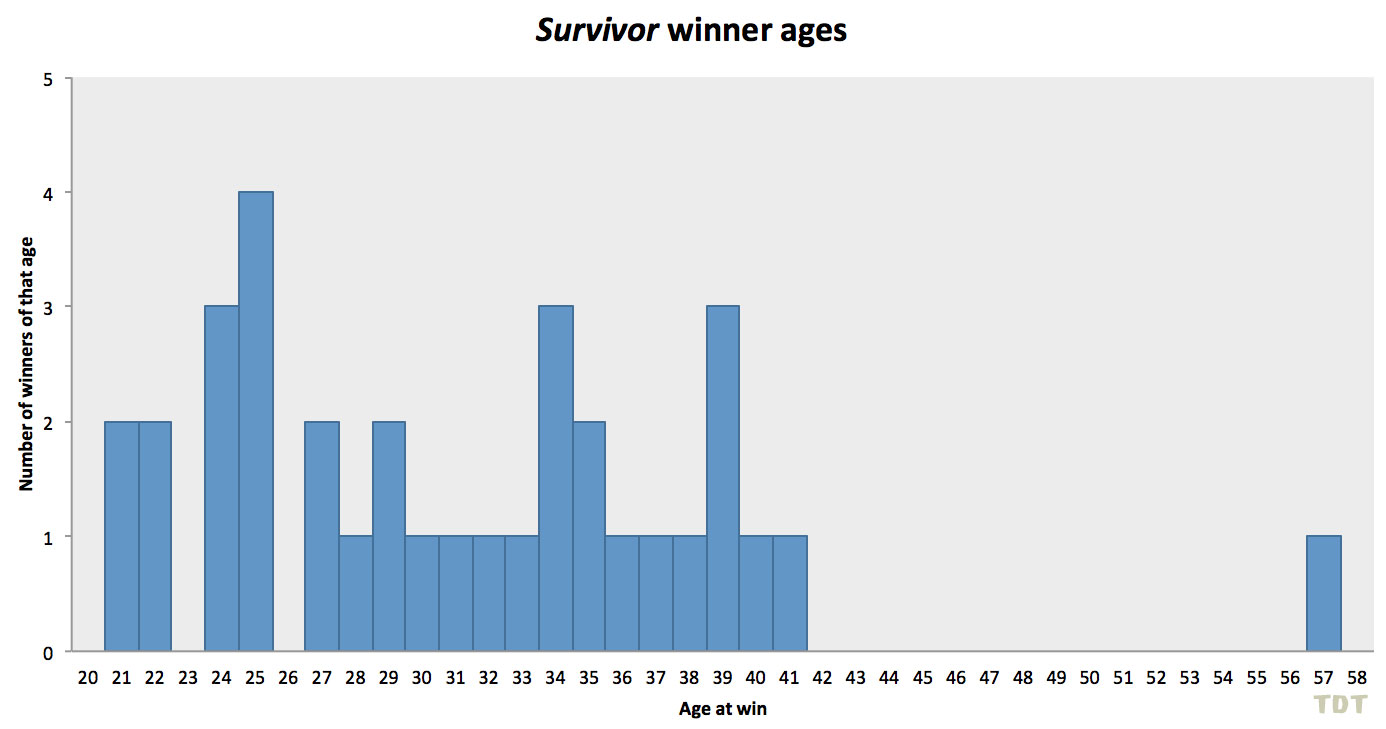
While this basic representation shows near-complete coverage of the 20s and 30s, and Bob's clear outlier win, it also has a few sample-size-related distractions, such as the blip at 39, the holes at 23 and 26, and so on. A more useful way to illustrate the data is to organize the winners into larger groups, to smooth out noise and reveal larger trends. By sorting the winners' ages into bins of 5-year increments, we get the following distribution:
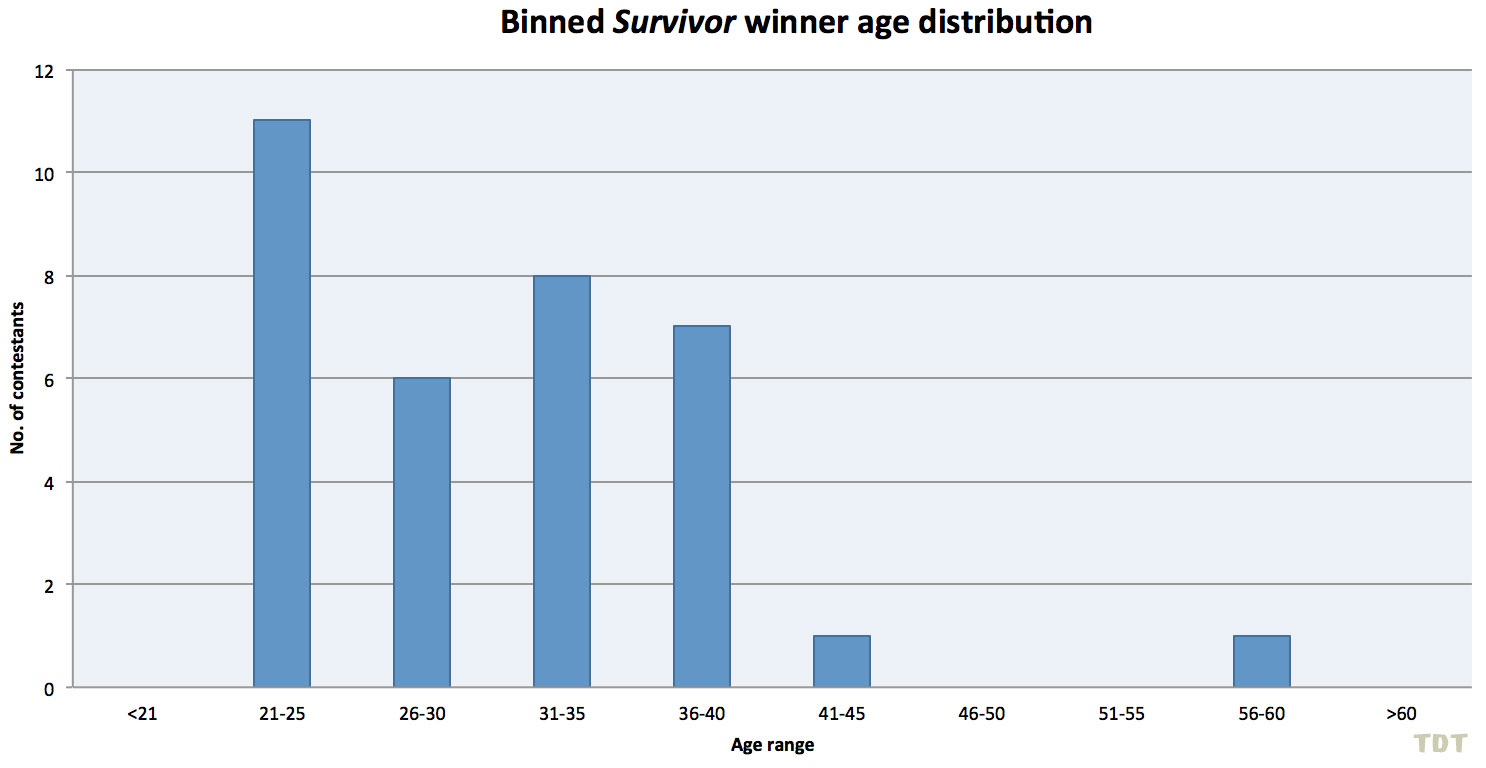
The result here is clear: Historically, winners can be in their early 20s, late 20s, early 30s, or late 30s. All are fine ages for a Survivor winner (and early 20s might be slightly more favorable). Everything else? Not so good. (Yeah, it would make the most sense just to group Denise in with the late-30s winners, but let's just leave the over-40 crowd with a scant glimmering of hope, shall we?)
But why is that? An obvious guess might be that people over 40 are simply underrepresented in the potential winner pool at large. To interrogate that, let's ask a different question:
At what rate do younger and older contestants become finalists?
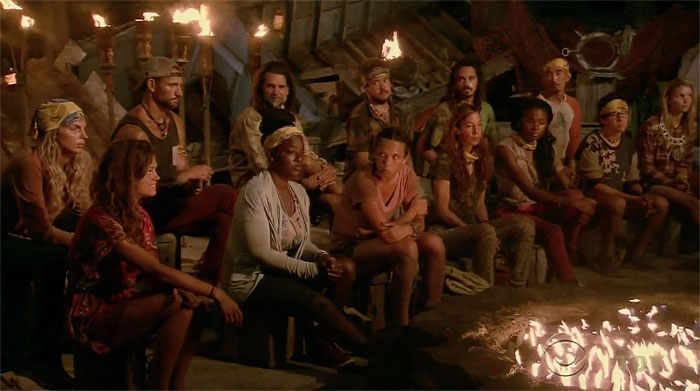
To look at the frequency with which people in various age groups become finalists and face the jury, we need to define our pool of eligible contestants. We could consider all contestants, but because individual immunity is generally unavailable before the merge, and because attending Tribal Council (or not) depends on how well a contestant's tribe performs in immunity challenges, it seems better to consider only people who reached the jury phase of the game. Any person who has made it to the jury phase (with a few exceptions, like Thailand, Cook Islands, and Heroes vs. Villains) can theoretically reach the final three or two under their own power, through alliance-building and/or immunity. We chose jury instead of merge as the cutoff, because we eventually also want to look at how jurors vote for finalists, and wanted to eliminate the older-season artifact of the first post-merge boot often not making the jury.
Looking at just this jury-or-better pool of contestants, we have 358 total people over the first 34 seasons. Here's how they are distributed, age-wise (blue bars, below):
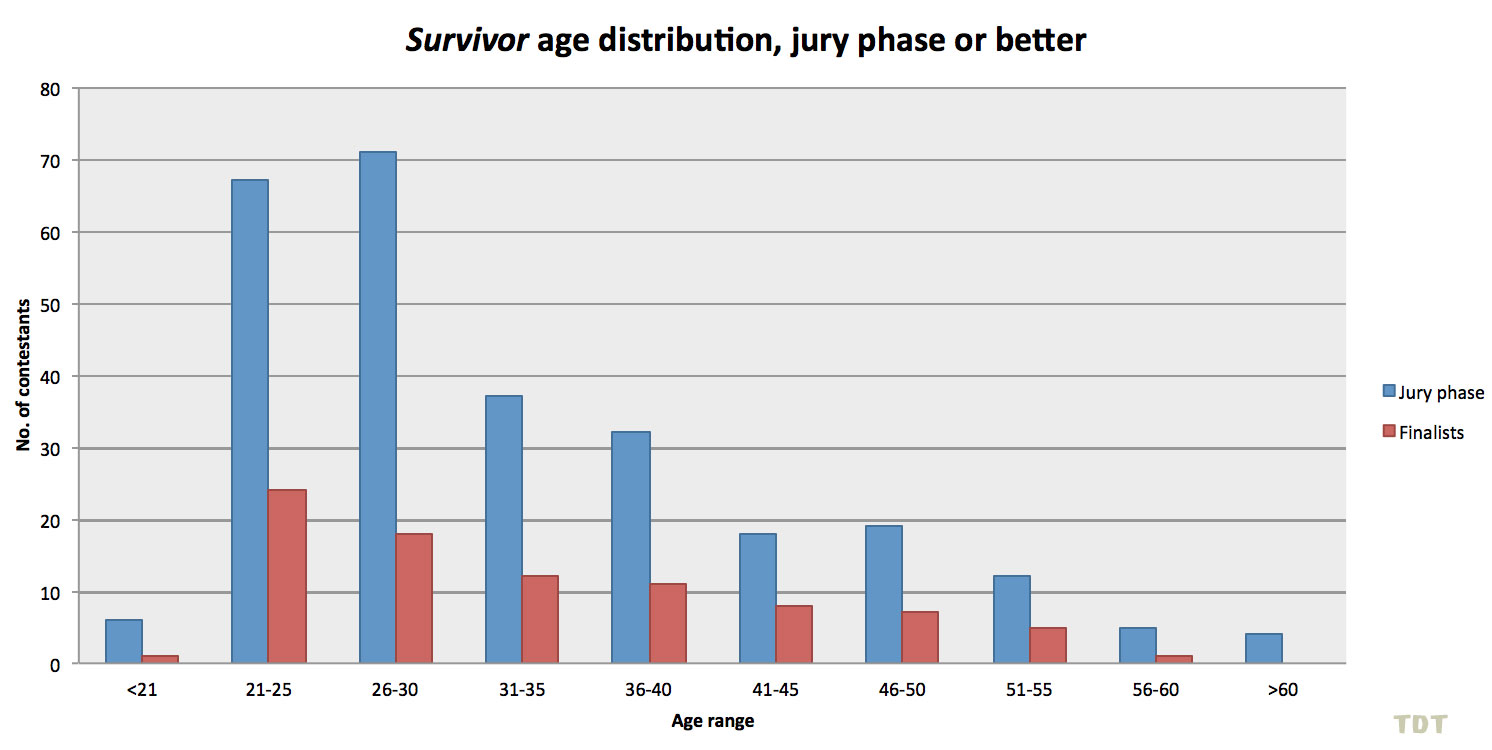
Not surprisingly (based on their rate of being on the show in the first place), players in their 20s are represented slightly more than 30-somethings, and their numbers continue to drop as players get older. The key point here, however: While over-40 players don't tend to win, they are still present in the jury phase of the game.
Furthermore, looking at the red bars in the above graph, people appear to reach the final two or final three ("Finalists") at roughly the same rate they get to the jury phase. If anything, a higher proportion of over-40 players who make it to the jury phase go all the way to the finals than do, say, late-20s players:
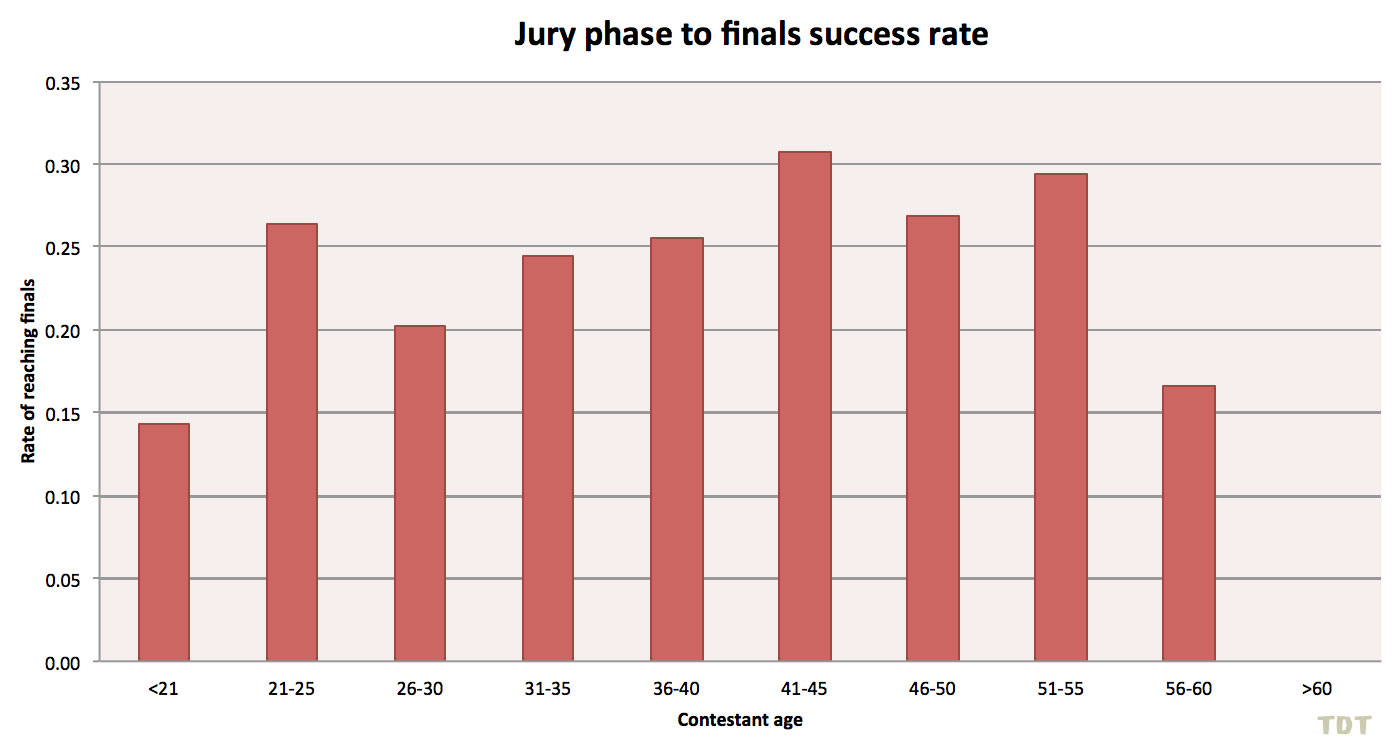
With 87 total finalists coming from a pool of 358 jury-or-better contestants, the average rate of reaching the finals would be 24%. So most groups find their way to the finals at a slightly better clip than that, except late-20s (barely), minors, and anyone 56 or over, with the caveat that the last two groups contain very few people to begin with (just 17 total).
So it's not that over-40 players don't reach the finals, it's just that they tend not to win once they get there. Keep in mind that the win rate for finalists, if it was just decided by a coin flip would be 34/87, or 39% (33% with a final three, 50% for a final two). People in their 30s overperform, people in their early 20s perform about as expected, and people over 40 spectacularly underperform. Except people named Bob Crowley or Denise Stapley.
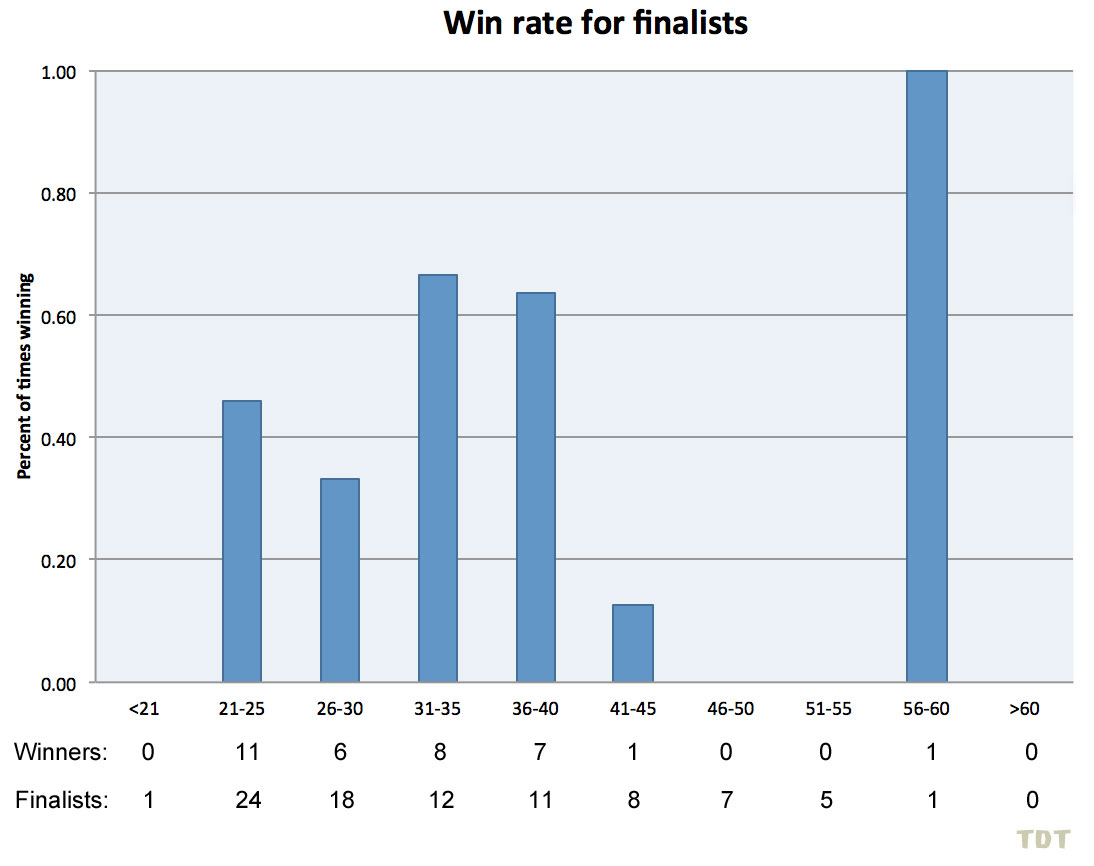
To put those numbers in a different perspective, we can re-group into roughly similar-sized pools: For finalists 25 and under, they've won 11/25 times. For late 20s, 6/18 times, slightly less frequent, but not dramatically so. Finalists from 31-40? A whopping 15/22 successes (or 16/23 if we expand the pool to 31-41... almost two-thirds of the time). But there are just two wins in 21 finals appearances for those over 40, and just one in 20 if we move Denise down to the next-youngest group. Clearly, that's a much poorer success rate.
Do older finalists hurt each other's chances?
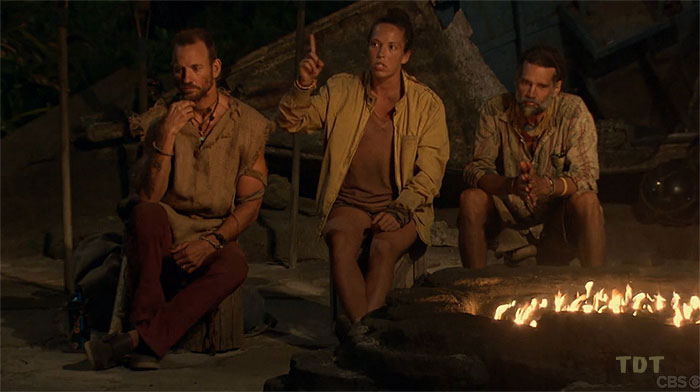
One possibility we may need to consider is: Are we just missing a lot of over-40 wins because too often, they're competing against each other in the same Final Two or three? Denise's win demonstrates that sometimes, over-40 contestants are together in the finals. The same is true for Bob's Gabon win over Susie Smith (who was 43). Same for the Game Changers Final Three, shown above (with 46-year-old Brad Culpepper and Troyzan Robertson, 55).
Looking back historically, how often have Final Twos or threes contained more than one over-40 finalist? It turns out that this tends to happen somewhat frequently - in six out of the 14 seasons in which at least one finalist was older than 40. While all four over-40 Final Two contestants were there alone against a younger opponent, Final Three seasons tend to have more than two over-40 contestants more often than they have just one. In addition to the three examples above, multi-over-40 finals seasons include Caramoan (Dawn Meehan, Sherri Biethman), Blood vs. Water (Monica Culpepper, Gervase Peterson), and Worlds Apart (Carolyn Rivera, Will Sims). In all three of those examples, and in Game Changers, the sole finalist who wasn't over 40 won.
| Configuration | Times happened | Over-40 wins | Seasons |
|---|---|---|---|
| Final Two, both >40 | 0 | - | - |
| Final Two, one >40 | 4 | 0 | Africa, Thailand, Pearl Islands, Vanuatu |
| Final Three, three >40 | 1 | 1 | Philippines |
| Final Three, two >40 | 5 | 1 (Gabon) | Gabon, Caramoan, Blood vs. Water, Worlds Apart, Game Changers |
| Final Three, one >40 | 4 | 0 | Fiji, Redemption Island, San Juan del Sur, Kaoh Rong |
Obviously in Philippines, an over-40 finalist was guaranteed to win. So that's one way an over-40 contestant can still win, assuming there are at least three of them in the cast to begin with (tough luck, older Season 36-ers). If we consider just the five seasons in which two over-40 finalists were present in the final three, that's still a success rate of just one win (Bob's) in five seasons, or 20%. That's really low, especially when you consider that over-40 contestants made up 10 of the 15 finalists, so there was a 67% chance of at least one winning, just by chance.
But is there any evidence that over-40 contestants are taking votes away from each other? In Gabon, Bob and Susie did split the seven jury votes, but their fellow finalist Sugar received zero. So Bob and Susie competing for votes didn't cause a younger finalist to win. Inversely, Caramoan and Worlds Apart were unanimous, blowout wins for the younger finalist, and none of the over-40 finalists received a single vote. And for Blood vs. Water and Game Changers, one of the over-40 contestants received zero votes. So in none of those cases was there evidence of an over-40 finalist losing the game simply because another over-40 finalist split votes they would otherwise have received (except in Gabon and Philippines, where an over-40 finalist still won).
Instead the evidence is pretty clear that, given the opportunity to choose between an over-40 finalist and someone younger , Survivor juries almost always choose the latter. Unless the alternative is Sugar. Survivor juries just don't seem to like older people very much.
Does juror age matter?
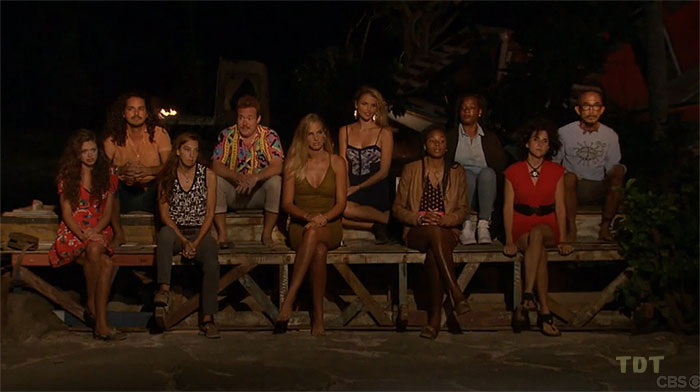
So why don't Survivor jurors tend to reward older players with a million dollars, given the opportunity to bestow the prize on someone younger instead? One possibility could be: If younger players are generally overrepresented in the jury phase relative to older contestants, might they just prefer to reward someone more similar to them in age?
This is complicated, but the answer appears to be: Not really. The main reason is, the average finalist age is 33.2, and the average juror age is... 33.2. They are, on average, pretty much the same. Looking in more depth season-by-season, there have been 18 times when the mean juror age was older than the mean finalist age. In those seasons, the jury actually voted against the older/oldest finalist 13 times out of 18 (the exceptions: Hatch in Borneo, Vee in Marquesas, Yul in Cook Islands, and Parvati in Micronesia; Aras and Danielle were the same age in Panama, so that result is hard to sort). So older juries seem perfectly happy rewarding younger players. Even in the case of Philippines, Denise was the youngest of the three finalists.
The same seems generally true of younger juries. There have been four juries with an average juror age below 30 (Pearl Islands, China, Micronesia, and Worlds Apart). Again, Parvati's win was the only time where the oldest finalist didn't receive the fewest jury votes (and Parvati was all of 25 at the time). The lesson is: Never try.
Ha ha! No, seriously, cheer up, future over-40 Survivor contestants! All is not lost. In fact, your best path forward to the win seems pretty obvious: Denise's. Just go to the Final three with two other players who are also over 40, ideally older than yourself. But what if, as in the (alleged) case of Season 36, the show neglects to cast three people over 40 in the first place? Well, tough luck. Better hope there's a Sugar around instead. Or pray for an unprecedented series of medevacs forcing another Final two.
If not... well, it's your own fault for not playing Survivor in your 30s.
(Final word: Clearly, the answer to Ultimate Question of (fire is) Life, the Universe, and Everything winning-related in Survivor, as asked in this article's title is: 42.)
ADVERTISEMENT